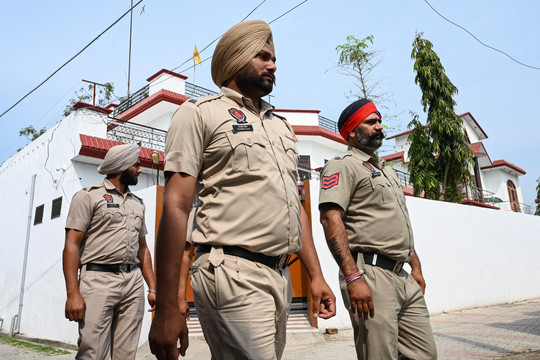On March 28, the Twitter account of the British Broadcasting Corporation (BBC)’s Punjabi news service was withheld in India on direction from Indian authorities. The move comes one week after at least 122 Twitter accounts, including those of journalists, politicians and non-governmental organisations, were suspended following a request by the Indian government on March 19.
At a press conference on March 20, Punjab state authorities alleged the restrictions were to combat the spread of ‘fake news’, as law enforcement continue to pursue their manhunt of ‘Waris Punjab De’ leader Amritpal Singh.As part of the state-wide police operation, restrictions on internet service were imposed across Punjab, affecting over 27 million people. Over 353 people have been taken into custody to date by state police during the crackdown.
The recent restrictions on internet access and social media have been preceded by ongoing conflicts between Amritpal Singh and the police. Prior to his attempted arrest, Amritpal and supporters stormed Ajnala Police station on February 24, hoping to secure the release of his associate Lovepreet Singh. Despite Lovepreet being granted release at the request of law enforcement, a case was filed against Amprital Singh and his supporters with police initially planning to arrest the separatist leader on March 18. Police have since pursued Singh across the country.
2023 has seen significant challenges to fundamental freedoms of expression and the press in India. In February, the British Broadcasting Corporation’s bureaus in New Delhi and Mumbai were raided by tax officials weeks after the outlet broadcast a documentary critical of Prime Minister Narendra Modi’s perceived inaction during the 2002 Gujarat Riots. Journalists Sanjay Rana and Jaspal Singh both faced detention for their comments against Bhartiya Jana Party politicians, while Irfan Mehraj, arrested on spurious terrorism financing charges, is one of several Kashmiri media professionals arrested since the revocation of Kashmir’s special status in 2019.
The IFJ said: “Government censorship, internet blackouts and restriction of journalists’ social media accounts in Punjab are dire impositions on press freedom and democracy in India. The IFJ urges the Indian and Punjab authorities to immediately reinstate access for all to internet and telecommunications services and cease the suppression of independent and critical voices.”

